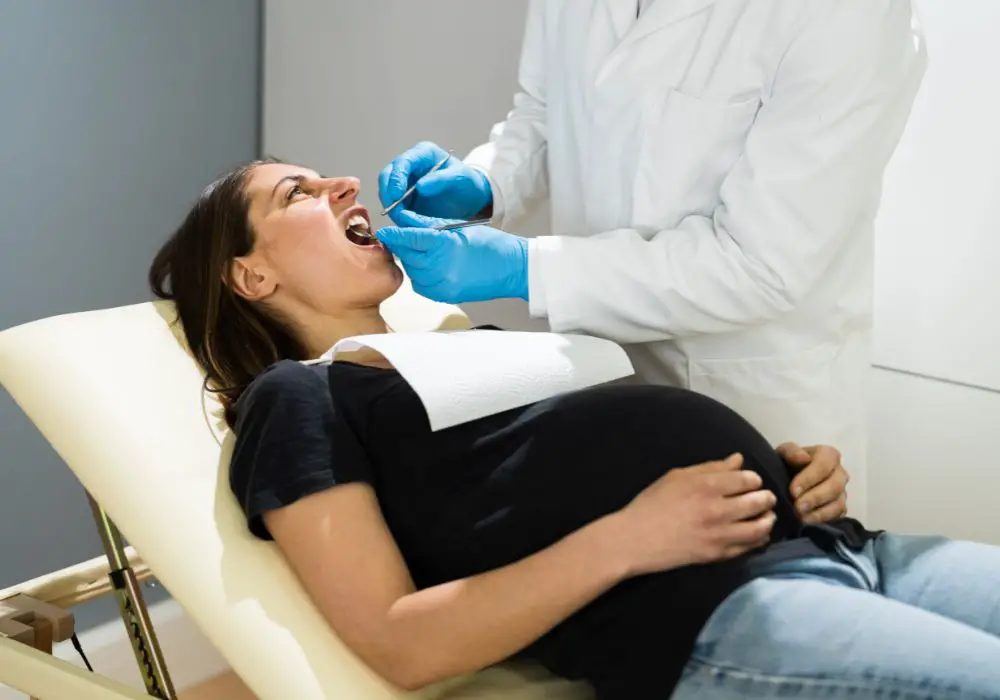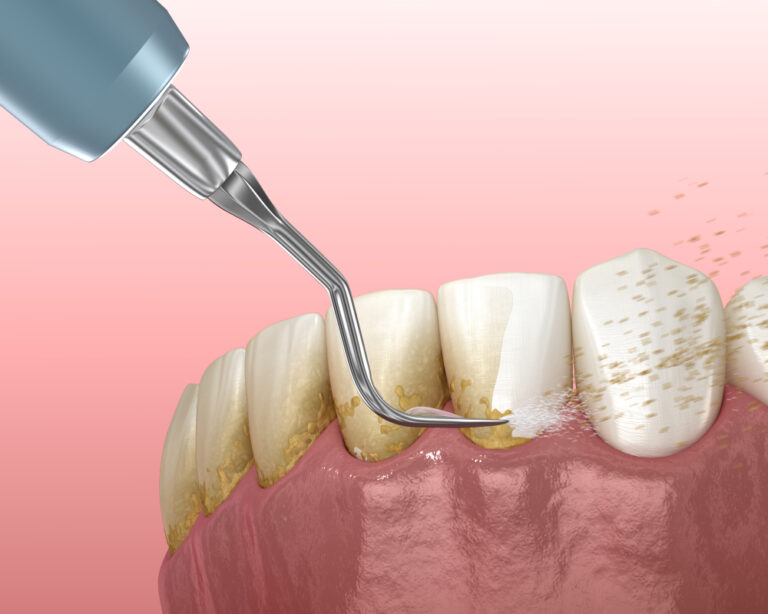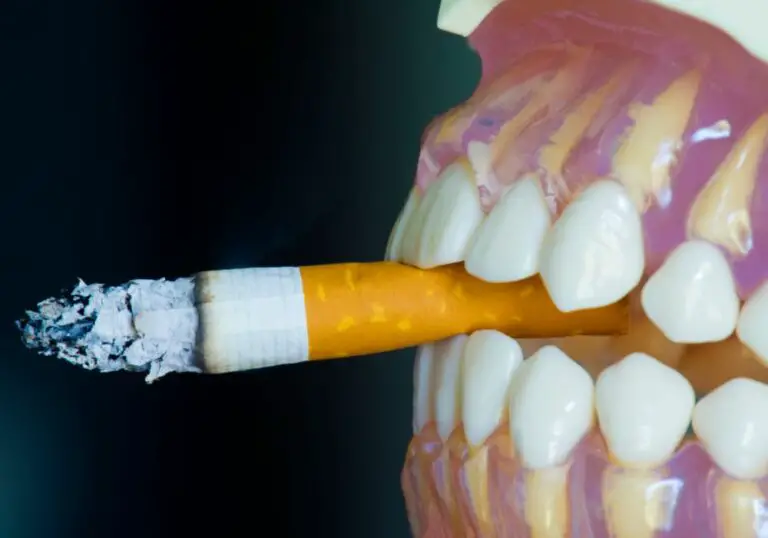If you’re pregnant and experiencing tooth pain, you may be wondering if it’s safe to have a tooth extraction. The good news is that in most cases, it is safe to have a tooth removed while pregnant. However, there are some important factors to consider before going ahead with the procedure.
First and foremost, it’s important to consult with your dentist and obstetrician before scheduling a tooth extraction. They can evaluate your individual situation and determine whether it’s safe for you to undergo the procedure. Additionally, they can provide guidance on the best time to have the extraction done, as well as any precautions or special considerations that may be necessary.
Understanding Tooth Extraction
If you are pregnant and facing a tooth extraction, you may have some concerns about the safety of the procedure. Fortunately, tooth extraction during pregnancy is generally safe, as long as it is performed by a qualified dentist and you take certain precautions.
Here are some things to keep in mind when considering a tooth extraction while pregnant:
Timing is important
If possible, it’s best to avoid tooth extractions during the first trimester of pregnancy. This is when the baby’s major organs are developing, and any stress or trauma to the body could potentially cause harm. However, if a tooth extraction is necessary during this time, your dentist will take extra precautions to ensure your safety and that of your baby.
The second trimester is generally considered the safest time for tooth extractions. By this point, the baby’s organs are fully formed, and the risk of complications is lower.
In the third trimester, your dentist may recommend postponing a tooth extraction until after the baby is born. This is because lying on your back for an extended period of time during the procedure can put pressure on your vena cava, the large vein that returns blood from the lower body to the heart. This can cause a drop in blood pressure and reduce blood flow to the baby.
Local anesthesia is safe
Your dentist will use a local anesthetic to numb the area around the tooth being extracted. This is safe during pregnancy and will not harm your baby. However, your dentist may avoid using certain types of anesthesia, such as nitrous oxide or sedation, which can affect the baby’s breathing.
Antibiotics may be necessary
If you have an infection in the tooth or surrounding tissue, your dentist may prescribe antibiotics before or after the extraction. It’s important to take these antibiotics as directed to prevent the infection from spreading and potentially harming your baby.
Follow post-extraction instructions carefully
After the extraction, your dentist will give you specific instructions for caring for the extraction site. It’s important to follow these instructions carefully to promote healing and prevent infection. You may need to avoid certain foods or activities for a few days after the procedure.
In summary, tooth extraction during pregnancy can be safe and necessary in certain situations. If you need a tooth extracted while pregnant, be sure to discuss your concerns with your dentist and follow their recommendations for a safe and successful procedure.
Pregnancy and Oral Health

When you’re pregnant, it’s important to take care of your oral health as it can affect both you and your baby. Here are some things you should know about oral health during pregnancy.
Hormonal Changes
During pregnancy, your body goes through significant hormonal changes that can affect your oral health. These changes can lead to an increased risk of developing gum disease, which can cause inflammation, bleeding, and tenderness in your gums.
Increased Blood Flow
When you’re pregnant, your body produces more blood, which can cause your gums to become more sensitive and prone to bleeding. This increased blood flow can also cause pregnancy gingivitis, which is a mild form of gum disease that affects many pregnant women.
Oral Hygiene During Pregnancy
Taking care of your oral health during pregnancy is essential for both you and your baby’s health. Here are some tips to help you maintain good oral hygiene during pregnancy:
- Brush your teeth twice a day with fluoride toothpaste.
- Floss daily to remove plaque and food particles from between your teeth.
- Rinse your mouth with an antimicrobial mouthwash to kill bacteria and freshen your breath.
- Eat a healthy, balanced diet that’s rich in vitamins and minerals.
- Avoid sugary snacks and drinks, which can increase your risk of developing cavities.
In summary, maintaining good oral hygiene during pregnancy is crucial for both you and your baby’s health. By following these tips, you can reduce your risk of developing gum disease, cavities, and other oral health problems.
Tooth Extraction Procedure
When it comes to tooth extraction during pregnancy, it’s important to understand the procedure and what to expect. Here’s a breakdown of what you can expect during a tooth extraction procedure.
Preparation
Before the procedure, your dentist will likely review your medical history and discuss any potential risks or complications that may arise during the procedure. They may also take X-rays to get a better look at the tooth and surrounding area.
It’s important to inform your dentist if you’re pregnant, as they may need to take extra precautions to ensure your safety and the safety of your baby. Depending on the stage of your pregnancy, your dentist may recommend postponing the procedure until after you give birth.
Process
During the procedure, your dentist will administer local anesthesia to numb the area around the tooth. They may also provide a sedative to help you relax.
Once the area is numb, your dentist will use special tools to loosen and remove the tooth. In some cases, they may need to make an incision in the gum to access the tooth.
The entire procedure typically takes less than an hour, but may take longer depending on the complexity of the extraction.
Aftercare
After the procedure, your dentist will provide instructions on how to care for the extraction site. This may include:
- Avoiding chewing on the extraction site
- Rinsing your mouth with salt water to promote healing
- Applying ice to the area to reduce swelling
- Taking pain medication as needed
It’s important to follow these instructions closely to ensure proper healing and minimize the risk of complications.
In conclusion, tooth extraction during pregnancy is generally safe when performed by a qualified dentist. By understanding the procedure and following proper aftercare instructions, you can help ensure a successful outcome.
Risks and Considerations

If you need to have a tooth extraction while pregnant, there are several risks and considerations to keep in mind. Here are some things to keep in mind before scheduling your appointment.
Anesthesia and Medications
When it comes to anesthesia and medications during pregnancy, it’s important to be cautious. While some types of sedation or general anesthesia may be used in consultation with a prenatal care health practitioner, it’s generally advised that women avoid sedation and general anesthesia during pregnancy. Local anesthetics with epinephrine may be used during pregnancy, but it’s important to discuss the risks and benefits with your dentist.
Stress and Anxiety
Undergoing a tooth extraction can be stressful and anxiety-inducing, especially during pregnancy. Stress and anxiety can have negative effects on both you and your baby, so it’s important to find ways to manage these feelings. Consider bringing a support person with you to your appointment, practicing deep breathing exercises, or listening to calming music to help reduce stress and anxiety.
Post-Extraction Complications
After a tooth extraction, there is a risk of complications such as infection, bleeding, and dry socket. These risks are present for anyone undergoing a tooth extraction, but they may be heightened during pregnancy. It’s important to follow your dentist’s post-operative instructions carefully and to contact your dentist if you experience any concerning symptoms such as fever, severe pain, or excessive bleeding.
Overall, while it is safe to undergo a tooth extraction during pregnancy, it’s important to carefully consider the risks and to discuss any concerns with your dentist and prenatal care health practitioner. By taking precautions and following post-operative instructions carefully, you can help ensure a safe and successful tooth extraction.
Alternatives to Tooth Extraction
If you’re pregnant and have a toothache, you may be wondering if tooth extraction is your only option. The good news is that there are alternatives to tooth extraction that may be suitable for you. Here are two options:
Root Canal Treatment
Root canal treatment is a procedure that removes the infected pulp from the inside of a tooth. This is a good option if the toothache is caused by an infection or decay. During the procedure, your dentist will numb the area around the tooth and remove the infected pulp. They will then fill the tooth with a special material and place a crown over it to protect it from further damage.
Root canal treatment is generally safe during pregnancy, but it’s important to discuss the risks and benefits with your dentist before proceeding.
Dental Fillings
If the toothache is caused by a cavity, a dental filling may be an option. Dental fillings are a common procedure that involves removing the decayed part of the tooth and filling it with a special material. This can help relieve the pain and prevent further damage to the tooth.
Dental fillings are generally safe during pregnancy, but it’s important to discuss the risks and benefits with your dentist before proceeding.
Overall, tooth extraction should be avoided during pregnancy if possible. However, if it’s necessary, your dentist will take steps to ensure that you and your baby are safe during the procedure.
Consulting Your Healthcare Provider

If you are pregnant and need a tooth extraction, it is important to consult both your dentist and obstetrician before proceeding with any dental work. Here are some considerations to keep in mind when discussing your dental health with your healthcare providers.
Discussion with Dentist
Your dentist will need to know that you are pregnant before any dental work is done. They will be able to advise you on the safest and most effective course of treatment for your specific situation. Some things to discuss with your dentist include:
- The reason for the extraction
- The type of anesthesia that will be used
- Any medications you are currently taking
- Any potential risks to you or your baby
Your dentist may also recommend postponing the extraction until after your baby is born, especially if it is not an emergency situation.
Considerations with Obstetrician
Your obstetrician will also need to be informed of any dental work you plan to have done during your pregnancy. They may have specific recommendations or concerns based on your individual circumstances. Some things to discuss with your obstetrician include:
- Any health conditions you may have
- Any medications you are currently taking
- Any potential risks to you or your baby
- The timing of the extraction in relation to your pregnancy
Your obstetrician may also recommend postponing the extraction until after your baby is born, especially if it is not an emergency situation.
In general, it is important to prioritize the health of both you and your baby when considering dental work during pregnancy. By consulting with both your dentist and obstetrician, you can make an informed decision about the best course of treatment for your individual needs.
Frequently Asked Questions
Is it safe to get a tooth extraction during pregnancy?
Yes, it is generally safe to get a tooth extraction during pregnancy. However, it is recommended to avoid any non-essential dental work during the first trimester, as this is a crucial time for fetal development.
What are the risks of getting a tooth pulled while pregnant?
The risks of getting a tooth pulled while pregnant are minimal, but there is a small risk of infection or bleeding. It is important to inform your dentist that you are pregnant, as they may take extra precautions to ensure your safety.
Can dental work be done during any trimester of pregnancy?
Dental work can be done during any trimester of pregnancy, but the second trimester is generally considered the safest time to have dental work done. This is because the risk of miscarriage is lower, and it is easier to lie on your back for an extended period of time.
What pain relief options are available during a tooth extraction while pregnant?
There are several pain relief options available during a tooth extraction while pregnant, including local anesthesia and nitrous oxide. However, it is important to discuss these options with your dentist and obstetrician to determine the safest option for you and your baby.
What are the alternatives to tooth extraction during pregnancy?
If possible, it is recommended to avoid tooth extraction during pregnancy and opt for alternative treatments such as root canal therapy or dental fillings. However, in some cases, tooth extraction may be necessary to prevent infection or other complications.
What are the consequences of leaving a tooth infection untreated during pregnancy?
Leaving a tooth infection untreated during pregnancy can lead to serious complications such as preterm labor, low birth weight, and preeclampsia. It is important to seek dental treatment as soon as possible if you suspect you have a tooth infection.







